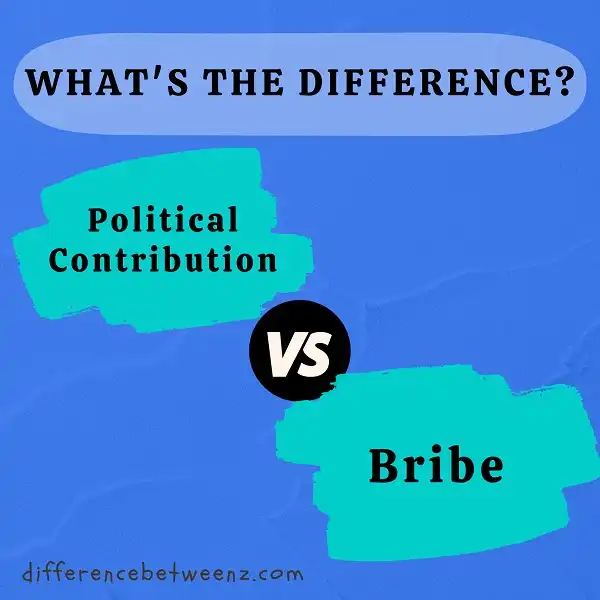When most people think of contributing to a political campaign, they think of donating money. However, there is a big difference between making a political contribution and bribing an elected official. In this blog post, we will discuss the differences between these two methods of influencing politics and government. We will also look at some examples of each type of contribution. Finally, we will explore the implications of making either type of contribution.
What is Political Contribution?
Political contribution is the act of donating money or resources to support a specific political cause or candidate. This may take the form of monetary donations, in-kind contributions, or volunteer work on behalf of a political campaign. Contributors can be either individuals or organizations, and the purpose of their contributions can range from securing access to politicians and policymakers to promoting a specific ideology or policy agenda. Whatever the motivation behind political contribution, this type of activity can play a critical role in shaping the outcomes of elections and government policies at all levels. Because it involves such an important aspect of our democratic system, it is incumbent upon those who contribute to do so responsibly and with full transparency. By working together to ensure that none unduly influence the political process for their own benefit, we can help preserve fair and equitable governance for all.
What is a Bribe?
A bribe is a payment or gift that is given in order to persuade someone to do something, usually something illegal or unethical. Bribes are often given in exchange for favors or special treatment. For example, a politician might accept a bribe in exchange for voting in favor of a particular bill. Bribes can also be given in order to influence the outcome of a court case or other legal proceeding. In some cases, people may even offer bribes in order to obtain government contracts or other business deals. Bribes are generally considered to be unethical and are often illegal.
Difference between Political Contribution and Bribe
Political contribution and bribe are two different terms that are often confused. A political contribution is a legally recognized method of donating money to support a candidate or party in an election. Political contributions are regulated by campaign finance laws, and the donor must be disclosed. A bribe, on the other hand, is an illegal payment made in exchange for a favor. Bribes are not regulated by campaign finance laws and are often given in secret. Bribery is a federal crime punishable by fines and imprisonment. Political contributions can be made by individuals, businesses, or organizations. Bribes must be given to an individual who has the power to make decisions on behalf of a government entity. Political contributions are given with the expectation that the candidate will support certain policies if elected. Bribes are given with the expectation of receiving favorable treatment in return. Political contributions are legal, while bribes are illegal. Political Contributions help to ensure that the elections process is fair, while bribes give some people an unfair advantage. When deciding whether to make a political contribution or give a bribe, it is important to understand the difference between the two. Otherwise, you may end up breaking the law.
Conclusion
The difference between a political contribution and a bribe is often murky, but it’s important to understand the distinction. A political contribution is an act of supporting a politician or cause with money or other assets. This can be done legally by donating to a campaign, Super PAC, or other organization involved in politics. A bribe, on the other hand, is an offer of something of value given to someone in order to influence their actions. Bribes are illegal under most circumstances, while political contributions are not always regulated.


